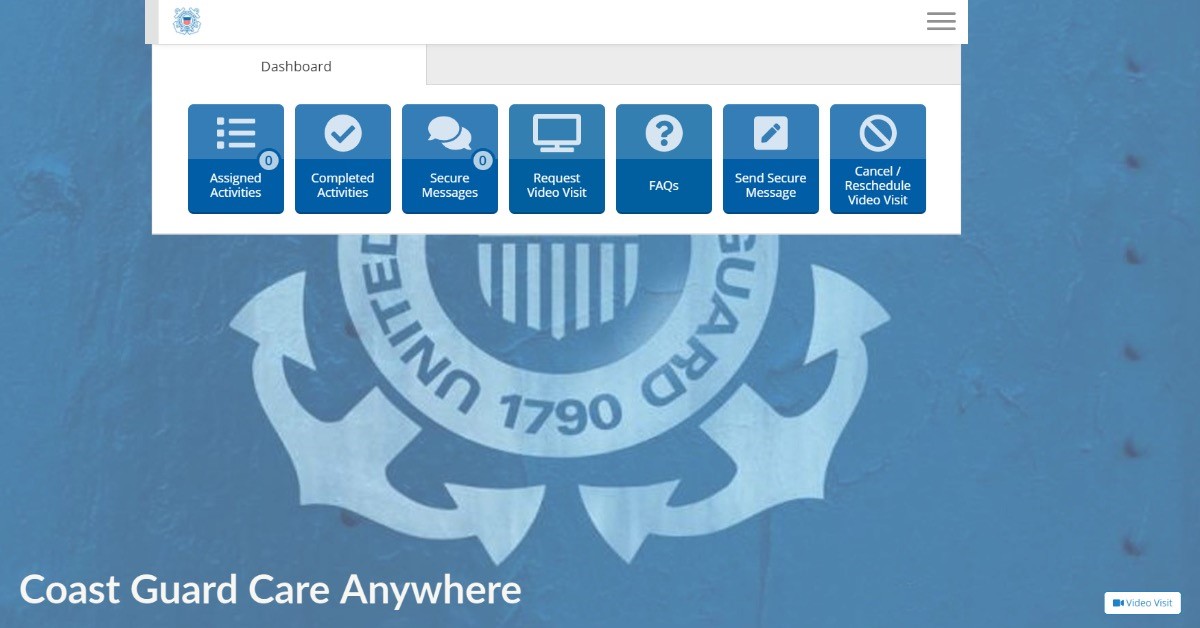The Coast Guard is rolling out virtual medical appointments to support members and health care providers.
The new, web-based telehealth system is called Coast Guard Care Anywhere (CGCA). You’ll be able to access services right from your personal computer, tablet or mobile phone. It’s also available through Coast Guard-issued iPads and smart phones distributed by the Health, Safety and Work-Life (HSWL) Service Center to local clinics.
CGCA should be fully online by April, serving the entire active duty and reserve workforce – spanning 42 clinics and 160 sickbays, plus members enrolled in Tricare Prime Remote.
You’ll be able to discuss your routine and long-term medical treatment, including things like monitoring high blood pressure, pain medications, and physical health assessments. You’ll also be able to meet with the Coast Guard’s new behavioral health providers.
Your telehealth appointments will seem like a video chat, but provide HIPPA-secure link to have a conversation with your provider. As with any technology, there are a lot of security interactions happening on the back-end that patients won’t be aware of. 
“Our goal is to provide an immediate solution to respond to COVID-19,” said Lt. Cmdr. Leslie Clark, who is chief of Health Systems Administration and responsible for deploying CGCA. Eventually, telehealth services will be provided through a single military health platform.
Systems engineer and program manager for the effort, Sonja Rodriguez agrees. “For this initial go around, you are not exchanging any information and we are not capturing any records, not seeing test results, not showing MRI reports or anything like that, it’s just a face-to-face meeting to discuss your condition,” said Rodriguez.
“We don’t want patients going to the hospitals during the pandemic if they don’t have to,” said Clark. In addition to these patients being vulnerable, we are also trying to lessen the strain on hospital professionals needed for acute conditions.”
The goal of CGCA was “to make sure we could have 200 doctors running at the same time, being able to see up to 2,000 patients a day with 200 sessions going live at the same time to cover all three time zones concurrently,” said Rodriguez. “And this software allows for that at full operational capacity and that is our ultimate goal.”
With the virtual capabilities, telehealth provides a slight advantage over telephone calls because it allows health care providers and members to see one another’s body language.
CGCA has piloted in the First, Eight, Ninth and Thirteenth Coast Guard districts and will be available to the entire active duty and reserve workforce by the spring.
“Telehealth is here to stay,” summarized Clark. “It will be one of the tools that the Coast Guard will use into the future and it will continue to adapt and change as Coast Guard needs evolve.”